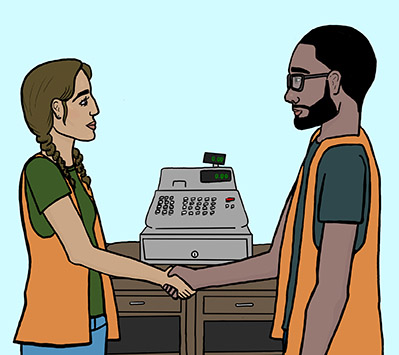OPINION: Southern hospitality has a new meaning
April 28, 2023
Southern hospitality is the stereotype of the South that the people are welcoming, warm, and friendly. This idea of “Southern hospitality” has harsh, narrow, and exclusive roots from an impactful legacy of slavery and high-class plantation-owner extravagance. Now, its image mostly evokes inclusive over-the-top invitations and gatherings, but after acknowledging its history and observing the state of it today, it means something more, and I feel it is applied on a larger scale, not just the South.
Southern hospitality, though it seems paradoxical, is a characteristic that isn’t just seen in the South, but all over the country and world. The reason I keep it at Southern hospitality is because the relationships of the region are complex and unique, and it is something those who are from or have lived in the South are all familiar with.
The stereotype of Southern hospitality is now a unique and inclusive signifier of camaraderie among multiracial working-class people. Worker solidarity, what I characterize as Southern hospitality for our understanding and because of the unique relations in the South, is an incredibly important phenomenon that exists and must be furthered.
I see Southern hospitality today as a symbol of solidarity between workers that must transcend racial constructs. This allows two humans and workers to look across the cash register and acknowledge that though we are personally strangers, we certainly are not strangers to the struggles of the working class in this country as allies and friends.
So why does it matter that Southern hospitality is solidarity mostly between workers? It’s because, deep down, we are conscious of our place in the world. We, the people, the workers, are both the driving force for change in the world, and we bear the brunt of that change. If we fight amongst ourselves like crabs in a barrel, we end up being vulnerable to being hurt by things that are best handled as united.
So next time you see a worker cooking your food or pushing your cart, ask them how they’re doing and respect them. After all, they are the builders of our world. Pay for your meal with your money. Pay them respect with solidarity and empathy.









